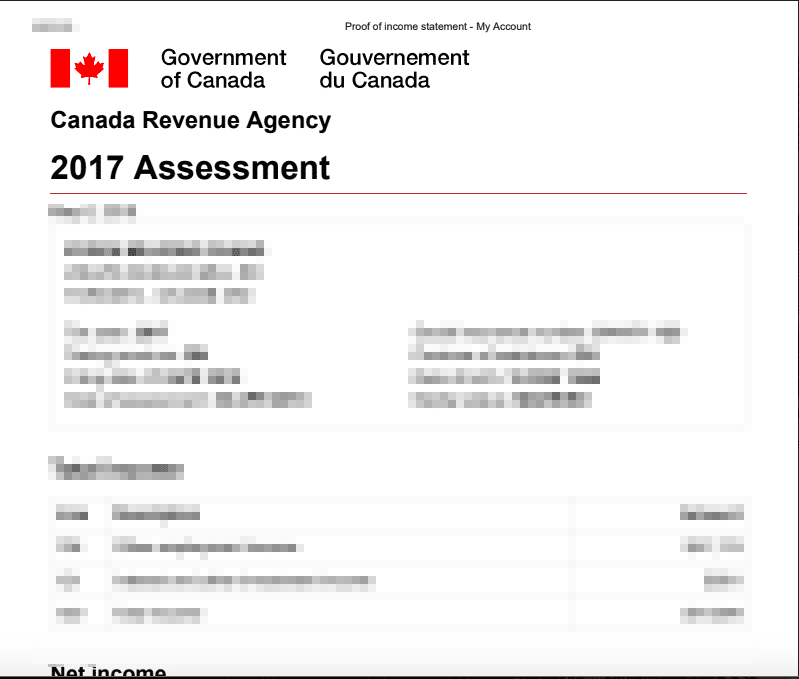
I am paying child support and send my notices of assessment to my ex each year. My ex is saying that is not enough: that I need to provide paystubs and tax returns, just to start. What gives?
(1) The Legal Test
A general misconception is that family law provides answers to questions. It usually doesn’t. The law provides legal tests – frameworks – to assess the merit of an argument. The test is either detailed in the legislated law, or created by a judge facing the same argument. Then, the test may be adopted by other judges in subsequent similar disputes.
For this issue the legal test is:
1. There is a legal obligation to pay child support.
2. That same law provides a list of documents that are necessary to determine the amount of support. If your child support obligation is written in a court order or separation agreement, specific documentation and – the timing of providing it – likely stated there too.
3. There is an assumption that, based on these documents, you income can be determined (and possibly adjusted by the law) for the purpose of calculating child support payable. That assumption can be challenged if there is evidence your actual income is not reflected by these documents. In such a situation, further documentation can be asked for. That will be subject of a different post.
4. More to the point of the question, the Notice of Assessment reflects a summary of the information that you provided to Canada Revenue Agency. There is other information that explains your income that may be relevant to determining your income for the purpose of paying child support. Consider, for example, what relevant information the notice of assessment does not provide, for example:
• if employed, the name of your employer. You may be self-employed through a corporation and paying yourself a “salary”.
• Certain employment or other deductions you may pay, for example, union dues, would be deducted from your income in calculating the amount for child support.
• If you are self-employed or have investment income, the sources of your income, your gross income and the nature of the expenses that you are deducting from your gross income.
(2) Full Disclosure
Now that you see the test, you can start to compile documents to support your claim:
For all support payors
(a) a copy of every personal income tax return filed by the parent or spouse including any materials that were filed with the return for each of the three most recent taxation years;
(b) a copy of every notice of assessment and reassessment issued to the parent or spouse for each of the three most recent taxation years;
For employed payors
(c) where the parent or spouse is an employee, the most recent statement of earnings indicating the total earnings paid in the year to date, including overtime, or, where such a statement is not provided by the employer, a letter from the parent’s or spouse’s employer setting out that information including the parent’s or spouse’s rate of annual salary or remuneration;
For self-employed payors
(d) where the parent or spouse is self-employed, for the three most recent taxation years (i) the financial statements of the parent’s or spouse’s business or professional practice, other than a partnership, and (ii) a statement showing a breakdown of all salaries, wages, management fees or other payments or benefits paid to, or on behalf of, persons or corporations with whom the parent or spouse does not deal at arm’s length;
(e) where the parent or spouse is a partner in a partnership, confirmation of the parent’s or spouse’s income and draw from, and capital in, the partnership for its three most recent taxation years;
(f) where the parent or spouse controls a corporation, for its three most recent taxation years, (i) the financial statements of the corporation and its subsidiaries, and (ii) a statement showing a breakdown of all salaries, wages, management fees or other payments or benefits paid to, or on behalf of, persons or corporations with whom the corporation, and every related corporation, does not deal at arm’s length;
For payors who may be a beneficiary of a trust
(g) where the parent or spouse is a beneficiary under a trust, a copy of the trust settlement agreement and copies of the trust’s three most recent financial statements; and
For payors who are or become unemployed, disabled or retired
(h) in addition to any information that must be included under clauses (c) to (g), where the parent or spouse receives income from employment insurance, social assistance, a pension, workers compensation, disability payments or any other source, the most recent statement of income indicating the total amount of income from the applicable source during the current year or, if such a statement is not provided, a letter from the appropriate authority stating the required information.
(3) Source
Disclaimer:
Just as you ought to speak to a doctor before relying or applying medical information you find on the internet, you should speak to a legal professional before relying or applying legal information you read on the internet. If you are looking quick, competent and affordable family law advice, learn more or book your appointment.
Help is Here
Disclosure Clinic does one thing: Family Law Financial Disclosure, done right.
personalized disclosure
Quickly get your needed documents together so your disclosure doesn’t become the story.
Motions to change
Nowhere is telling your story more important than a motion to change.
ENDLESS DISCLOSURE REQUESTS
Determining what disclosure is relevant and cogently presenting it.